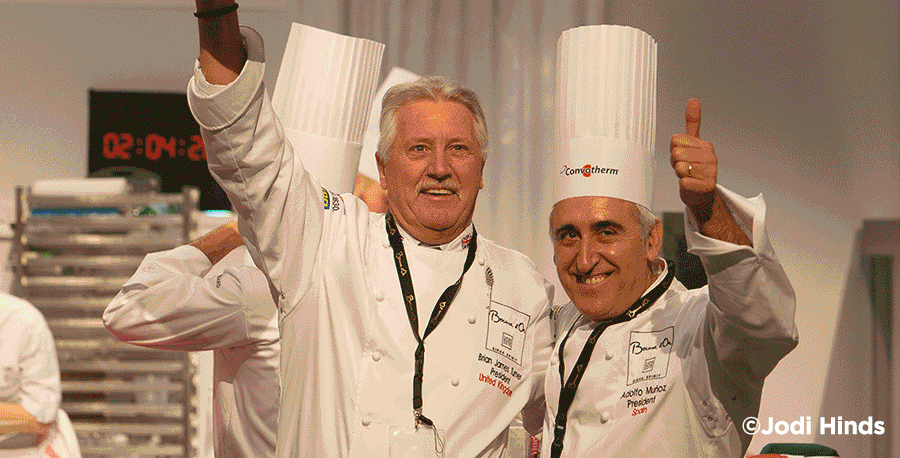
Turner On TV
Brian recently made an
appearance on James Martin's Saturday Morning

Click here to watch it again

news
Waitrose Weekend: Organic Food
Every now and then I spot a product that is heavily marked organic and decide I have to have a look and see what it’s all about. The idea of organic is quite intriguing, don’t you agree? But what does it actually mean? The best definition I could come up with is quite simple: crops and plants that are produced without the use of pesticides and artificial fertilisers, and animals and birds bred and reared with due attention to their welfare and by methods that are both natural and traditional. As I recall when I used to go to Norman Bentley’s farm on a Saturday morning, just a mile from my childhood home, that’s exactly what used to happen. I’m talking about the late 1950s – so what has changed?
It would appear to me that in the mid-1940s soil erosion was being markedly noticed by our farmers, and the consequent growth of our post-war population, with its need for bounteous amounts of food at relatively cheap prices, was putting even more pressure on the existing farms and their soil. Conventional farming became over-industrialised with the excessive use of chemicals and was, according to many, causing untold damage that would eventually endanger our own health.
It was around this time that the Soil Association was created with a view to changing this march of over-production. Part of its ethos was to help establish a system of production that protected the land from damage and degredation.
A set of guidelines was produced and controlled by the Soil Association which, when adapted and followed by food producers, allowed them to call their products organic.
The perception of organic food is that it is good for you and obviously with little or no chemical residues it is difficult to argue with that. In its early days organic food was not that plentiful, but thanks to the work of many supporters, and in particular HRH The Prince of Wales and his Duchy Originals brand, so many more products are now available.
There is no doubt that many organic foods can cost more than non-organic but consider the value for money, not just the price. It may benefit all of us if we pay that bit extra at the till but gain the protection and sustainability of our environment.
However, we must also recognise that not all nonorganic food is full of chemicals and many non-organic producers work equally as hard to ensure the best possible environment for their harvest and animals.
As for whether organic food has more flavour or not, well, the jury is still out.
That, good reader, is up to you and your tastebuds. But what I can tell you is that one of the best benefits of organic food is that it provides the shopper with a choice of how their ingredients are grown. And that’s good for everyone.


